Description
Rheneton – Hernia Natural Treatment
Rheneton by Herbs Solutions by Nature presents a harmonious blend of carefully selected botanicals, designed to offer a gentle yet effective Hernia Natural Treatment. Crafted with precision, this formula brings together Serpentine, Arillus Myristicae, Elephant Creeper, Nutmeg, and Saffron to deliver a natural and supportive remedy aimed at enhancing abdominal strength and easing discomfort associated with hernia conditions.
Embraced by the ethos of Herbs Solutions by Nature, Rheneton offers a holistic alternative that aligns with a lifestyle-focused approach to wellness. As a Hernia Natural Treatment, it combines the soothing properties of each ingredient—Serpentine’s traditional support, Arillus Myristicae’s grounding essence, Elephant Creeper’s restorative activity, Nutmeg’s comforting warmth, and Saffron’s gentle nurturing qualities—all integrated into one thoughtfully balanced formula.
Rheneton stands out as a nature-driven Hernia Natural Treatment, free from harsh additives and fortified by ingredients revered in herbal traditions. Whether you’re coping with mild hernia discomfort or seeking a complementary approach alongside conventional strategies, Rheneton aims to support your journey with a blend that’s rooted in care and time-honored herbal knowledge.
With Rheneton, Herbs Solutions by Nature brings you more than just a supplement—it offers a path toward comfort and resilience, inviting a renewed sense of balance in daily life. This formulation is a testament to the potential of botanical support, wrapped in a promise of purity and thoughtful design, empowering your personal approach to hernia wellness.
Hernia Natural Treatment, Herbal Remedies for Hernia
Rheneton is a powerful and effective formulation developed by Herbs Solutions by Nature, designed to bring long-term relief and comfort to people struggling with hernia conditions. Hernia is a painful and uncomfortable problem that occurs when an organ or tissue pushes through a weak spot in the muscles or connective tissue. Many people suffering from hernia experience constant discomfort, abdominal pain, and difficulty in carrying out daily activities. While surgery is often considered as the primary option for managing hernia, not everyone is ready to undergo invasive procedures, long recovery times, and potential side effects of surgical intervention. That is why Rheneton has been created to offer a Hernia Natural Treatment that works gently and effectively on the body to support healing and improve quality of life.
Rheneton is not just another supplement; it is a carefully crafted blend of pure, time-tested herbs that have been traditionally used for generations in natural healing. Herbs Solutions by Nature has taken this knowledge and combined it with modern methods to create a product that stands out as one of the best Herbal Remedies for Hernia. Unlike chemical-based medications that may only mask the pain temporarily, Rheneton works holistically to strengthen the body from within, targeting the root cause of hernia and offering a Natural Cure for Hernia that is both safe and sustainable.
Every ingredient in Rheneton has been selected with great care to ensure maximum effectiveness. It includes the healing power of herbs such as Serpentine, Arillus Myristicae, Elephant Creeper, Nutmeg, and Saffron. These natural ingredients are known for their anti-inflammatory, pain-relieving, and muscle-strengthening properties. Together, they help reduce swelling, ease discomfort, and provide support to weakened tissues and muscles in the affected area. This makes Rheneton not just a symptom reliever, but a comprehensive Hernia Natural Treatment that works deeply and gradually to restore balance in the body.
One of the key advantages of Rheneton is that it is completely herbal and free from harmful chemicals, additives, or synthetic substances. Many people hesitate to take long-term medication due to concerns about side effects, but with Rheneton, safety and natural healing go hand in hand. It is designed to be gentle on the stomach and suitable for prolonged use, ensuring that individuals who rely on Herbal Remedies for Hernia can continue their treatment without fear of unwanted complications. Herbs Solutions by Nature takes pride in creating products that align with the body’s natural healing process, and Rheneton is a perfect example of this commitment.
Hernia not only causes physical discomfort but also affects emotional well-being and lifestyle. Constant pain, restricted movement, and worry about worsening symptoms can take a toll on confidence and daily functioning. Rheneton has been developed keeping this in mind, as a Natural Cure for Hernia that not only reduces physical symptoms but also restores peace of mind. Knowing that there is a safe, herbal, and effective solution available can make all the difference in one’s healing journey.
Customers who have tried Rheneton from Herbs Solutions by Nature have reported significant improvements in their condition. They have experienced relief from abdominal pain, reduced bulging, and improved digestion, as well as better mobility and energy levels. Unlike quick-fix solutions, Rheneton works consistently over time, with results that are more sustainable and long-lasting. This makes it a preferred choice for those who believe in natural healing and wish to avoid the risks associated with surgery or chemical-based medications.
Another unique feature of Rheneton is its adaptability. Since hernia can vary in type and severity, from inguinal and umbilical hernia to hiatal and incisional hernia, Rheneton has been formulated in a way that it provides broad-spectrum support. The herbal ingredients work together to address inflammation, strengthen weak spots, and promote natural healing, making it an excellent choice among Herbal Remedies for Hernia across different cases.
Herbs Solutions by Nature has always been at the forefront of providing safe and effective herbal solutions for chronic health issues, and Rheneton continues this tradition with excellence. It embodies the philosophy that nature has the best cures when used wisely and carefully. Each capsule of Rheneton represents years of herbal knowledge, modern research, and a deep understanding of what the body needs to heal itself naturally. It is more than just a supplement—it is a step toward reclaiming health, comfort, and freedom from the limitations hernia can cause.
For individuals searching for a genuine Hernia Natural Treatment, Rheneton offers hope and healing. It goes beyond temporary relief and provides a comprehensive Natural Cure for Hernia, restoring strength and resilience to weakened muscles and tissues. By choosing Rheneton, customers are not just investing in a product but in their overall well-being. Herbs Solutions by Nature ensures that every bottle of Rheneton is prepared under strict quality control, maintaining purity and potency so that users get the maximum benefits of herbal healing.
In a world where synthetic treatments and invasive procedures dominate, Rheneton shines as a beacon of natural wellness. Its herbal formula, crafted with Serpentine, Arillus Myristicae, Elephant Creeper, Nutmeg, and Saffron, has been designed to deliver powerful results without the drawbacks of conventional treatment. Those who wish to experience the gentle yet effective touch of nature in overcoming hernia symptoms will find Rheneton to be the ultimate solution.
If you are tired of the constant discomfort and are hesitant about surgical options, Rheneton from Herbs Solutions by Nature can be the turning point in your healing journey. With consistent use, a balanced lifestyle, and trust in natural healing, you can experience relief, strength, and renewed energy. Rheneton is not just a product—it is a trusted partner in achieving holistic wellness through Herbal Remedies for Hernia. Its safe, effective, and natural formula is a true gift from nature for those seeking a real alternative to surgery and chemical-based drugs.
Rheneton embodies the essence of Herbal Remedies for Hernia, providing a Hernia Natural Treatment that works gently, effectively, and safely. By choosing Rheneton, you choose a Natural Cure for Hernia that is rooted in centuries of herbal wisdom and supported by modern care and commitment to quality. Herbs Solutions by Nature brings you this trusted formula to help you overcome the challenges of hernia and embrace a healthier, happier, and more comfortable life.
Benefits of Rheneton Herbal Supplement
Living with a hernia can be painful, uncomfortable, and emotionally draining. Many individuals look for safe and effective alternatives to avoid invasive surgical procedures, which often come with long recovery times and potential risks. At Herbs Solutions by Nature, the natural formula Rheneton has been designed as a powerful Hernia Natural Treatment to help people regain comfort, mobility, and peace of mind. Unlike conventional approaches that may mask symptoms or involve surgery, Rheneton uses carefully selected herbal ingredients to provide a holistic and lasting solution.
The many benefits of Rheneton, highlighting why it has become a trusted choice for those seeking natural relief from hernia discomfort.
1. Provides a Safe, Natural Approach to Hernia Relief
One of the most important benefits of Rheneton is its natural formulation. Made from pure herbal extracts, this remedy ensures a safe alternative to chemical-based medications. As a Hernia Natural Treatment, Rheneton works in harmony with the body to encourage healing and strengthen weak areas without the risks often associated with surgery or synthetic drugs.
2. Strengthens Abdominal Walls and Muscles
A hernia typically occurs due to weakness in the abdominal wall or surrounding tissues. Rheneton’s blend of herbs is traditionally known for supporting muscle strength and tissue repair. By reinforcing the abdominal wall, Rheneton not only helps in reducing discomfort but also plays a preventive role in lowering the chances of the hernia worsening over time.
3. Reduces Pain and Discomfort Naturally
Pain, pressure, and tenderness are common complaints among hernia sufferers. Rheneton provides soothing relief by gently reducing inflammation and relaxing strained muscles. Unlike painkillers that provide temporary relief, this herbal solution addresses the root cause, helping the body restore balance and comfort naturally.
4. Promotes Digestive Health
Hernias are often linked with digestive discomfort, including bloating, acidity, constipation, and indigestion. Rheneton supports digestive health by regulating bowel movements and easing pressure in the abdominal area. This not only reduces irritation caused by hernias but also promotes overall gut health, which is vital for long-term well-being.
5. Supports Natural Healing and Recovery
Unlike quick fixes that mask symptoms, Rheneton enhances the body’s natural ability to heal. The herbal ingredients work at a cellular level to promote tissue regeneration, improve circulation, and restore the body’s strength. Over time, this holistic approach helps in creating a healthier internal environment, which reduces the recurrence of hernia-related problems.
6. Non-Invasive Alternative to Surgery
Surgery is often recommended for hernia cases, but many people hesitate due to costs, risks, and lengthy recovery. Rheneton offers an excellent natural cure for hernia that doesn’t involve surgical procedures. By strengthening weak tissues and supporting long-term healing, it helps patients manage their condition effectively without going under the knife.
7. Improves Mobility and Daily Functioning
Hernias can severely limit mobility, making everyday activities like bending, lifting, or even walking uncomfortable. By relieving pain and strengthening muscles, Rheneton restores freedom of movement. Users often report being able to resume their daily tasks with greater ease and confidence after consistent use of this Hernia Natural Treatment.
8. Boosts Immunity and Overall Wellness
The herbs in Rheneton are not only targeted at hernia relief but also at improving general health. They are rich in antioxidants and natural compounds that strengthen the immune system, reduce oxidative stress, and improve energy levels. This dual action ensures that while the body heals from hernia-related problems, overall vitality is also enhanced.
9. Gentle Yet Effective Formula
Some treatments can be harsh on the body, leading to side effects such as nausea or weakness. Rheneton, being 100% herbal, is gentle on the stomach and body systems. It is designed to be safe for long-term use, making it a dependable solution for people looking for consistent relief without negative aftereffects.
10. Provides Long-Term Relief
One of the standout benefits of Rheneton is its focus on long-term results. While synthetic medications may temporarily ease pain, they do not address the underlying weakness. Rheneton’s natural ingredients work over time to strengthen tissues, improve digestion, and reduce strain in the affected area, ensuring lasting comfort and fewer recurrences.
11. Helps with Different Types of Hernia
Whether it is inguinal, umbilical, or hiatal hernia, Rheneton is formulated to support a wide range of hernia conditions. Its natural composition adapts to the body’s needs, targeting the root cause of discomfort regardless of the hernia type. This makes it a versatile Hernia Natural Treatment trusted by many users worldwide.
12. Enhances Quality of Life
Living with a hernia can affect not just physical health but also emotional well-being. Constant pain and limited mobility can lead to frustration, stress, and reduced confidence. By alleviating symptoms and promoting healing, Rheneton empowers individuals to regain control over their health and enjoy life without constant worry or discomfort.
13. Trusted Herbal Remedy from a Reliable Source
When choosing an herbal remedy, quality and trust matter. Herbs Solutions by Nature is known for its commitment to using premium ingredients and following strict quality standards. Rheneton reflects this dedication, offering users a reliable and authentic product backed by traditional herbal wisdom and modern care.
14. Easy to Use and Incorporate into Daily Routine
Unlike complicated treatments, Rheneton is simple and convenient to use. Its natural formula fits easily into daily health routines, making it accessible for individuals of different lifestyles. Consistency is key, and with regular use, Rheneton ensures progressive improvement in hernia symptoms.
15. Cost-Effective Solution
Surgery and ongoing medical treatments for hernia can be extremely costly. Rheneton provides a budget-friendly yet highly effective option for those who want results without heavy financial burdens. Investing in a natural, long-term solution like Rheneton not only saves money but also offers peace of mind.
Usage Instruction
Rheneton Herbal Supplement Usage Instruction:
- The normal dose is 2 pills each day right after a meal. Do not take more than the prescribed dose on your own.
- This Herbal Supplement can be swallowed with water or milk.
Why Choose Rheneton for Hernia?
When looking for a hernia support option that aligns with holistic healing and natural wellness, Rheneton stands out for several compelling reasons:
1. Formulated with Carefully Blended, Potent Herbs
Rheneton combines a unique mix of natural ingredients—Serpentine (75 mg), Arillus Myristicae (60 mg), Elephant Creeper (30 mg), Nutmeg (30 mg), and Saffron (19 mg)—blended in precise amounts for maximum synergy and potency.
2. A Natural, Gentle Alternative to Surgery
Promoted as a “Herbal Treatment for Hernia”, Rheneton presents a non-invasive approach that functions alongside lifestyle changes, potentially helping ease discomfort and support healing without medical intervention.
3. Targets Pain, Inflammation & Healing
According to the product description, Rheneton may help:
- Reduce pain and inflammation in the abdominal muscles
- Alleviate burning sensations and swelling
- Soothe irritation and accelerate healing in the affected area
These benefits can enhance comfort and aid recovery in daily life.
4. Strengthens Weak Abdominal Muscles
Rheneton is specially recommended for individuals experiencing weakened abdominal muscles—such as those under strain from heavy lifting or those who identify as “weak, obstinate, and headstrong.” Its blend aims to reinforce muscle integrity and resilience.
5. Organic, Clinically-Tested Ingredients with No Side Effects
The product touts its 100% organic ingredients and claims to be clinically tested for efficacy, offering a wellness-focused remedy free from harsh side effects.
6. Safe and Holistic Care for All
Rheneton positions itself as a safe, herbal supplement suitable for both men and women, especially useful for those with abdominal fat or general weakness. Its natural basis aims to harmonize relief with well-being.
7. Clear and Convenient Usage
The instructions are straightforward: take 2 pills daily, right after meals, with water or milk. It’s easy to incorporate into everyday routines.
Product Q&A for Rheneton – Hernia Natural Treatment
Q1: What is Rheneton?
Rheneton is a carefully formulated herbal supplement offered by Herbs Solutions by Nature, designed as a natural and safe approach for managing hernia symptoms. Made from time-tested herbal ingredients, Rheneton works as a Hernia Natural Treatment, supporting the body’s natural healing process while strengthening the abdominal walls and improving digestive health. Unlike synthetic medicines or invasive surgery, this remedy provides a holistic, gentle, and effective alternative for long-term relief.
Q2: How does Rheneton work?
Rheneton works by targeting the root causes of hernia rather than just masking the discomfort. Its unique blend of herbs helps reduce inflammation, improve muscle tone, and support tissue regeneration. This promotes better abdominal strength and prevents further protrusion of organs. Many users also experience reduced pain, bloating, and discomfort over time, making Rheneton one of the most trusted Herbal Remedies for Hernia.
Q3: Who can use Rheneton?
Rheneton is suitable for adults experiencing mild to moderate hernia symptoms. It is designed for people who prefer a Hernia Natural Treatment over surgical procedures or chemical-based drugs. However, it is always recommended to consult a healthcare professional if you are pregnant, nursing, or taking other medications.
Q4: What ingredients are used in Rheneton?
Rheneton is crafted with powerful herbal extracts like Serpentine, Arillus Myristicae, Elephant Creeper, Nutmeg, and Saffron. Each ingredient plays a specific role in strengthening abdominal tissues, reducing swelling, and easing discomfort. These natural herbs have been traditionally recognized in Herbal Remedies for Hernia for their effectiveness and safety.
Q5: How should Rheneton be taken?
The recommended dosage is mentioned on the product packaging. For best results, Rheneton should be taken consistently as per directions, along with a healthy lifestyle and balanced diet. Regular use helps improve overall abdominal strength and provides lasting benefits as a natural hernia management solution.
Q6: Are there any side effects of Rheneton?
Since Rheneton is made from 100% natural herbs, it is generally safe and well-tolerated. Unlike synthetic drugs, it does not cause harmful side effects when taken as directed. However, individuals with allergies to any of the listed herbs should avoid it.
Q7: How long does it take to see results?
Results vary depending on the severity of the condition and consistency of use. Some people notice relief within a few weeks, while others may require a longer duration for significant improvement. Continuous use ensures the best results, making Rheneton a reliable Hernia Natural Treatment.
Q8: Why choose Rheneton over surgery or synthetic drugs?
While surgery is often suggested for hernia, it carries risks and a long recovery period. Synthetic drugs may only provide temporary relief. Rheneton, on the other hand, offers a non-invasive, safe, and natural solution. It helps manage symptoms while promoting overall abdominal and digestive health, making it one of the best Herbal Remedies for Hernia.
Herbs Solutions By Nature offers some other kind of supplements for Epididymitis and Herbal Supplement for Rectal Prolapse.

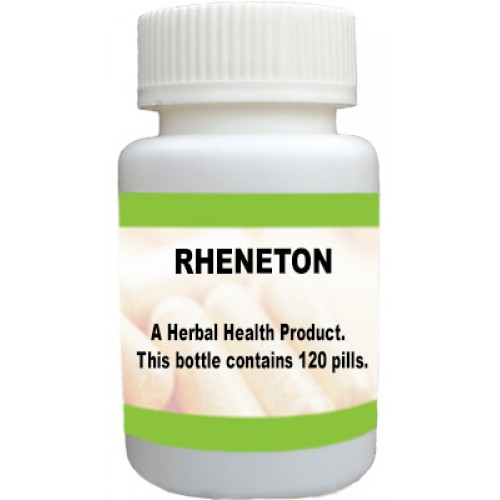
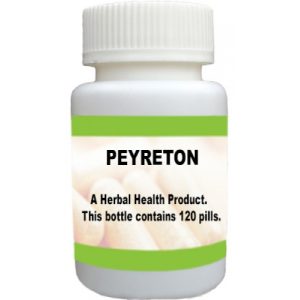

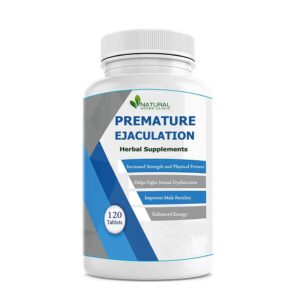
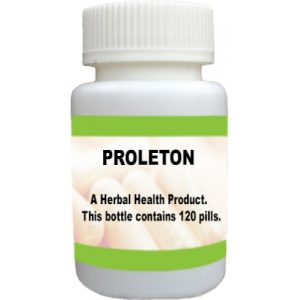
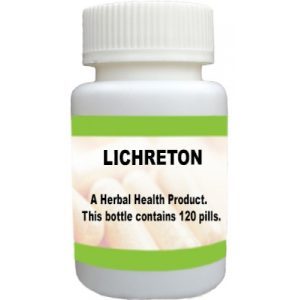
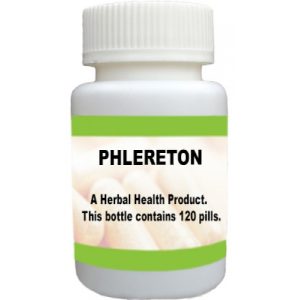
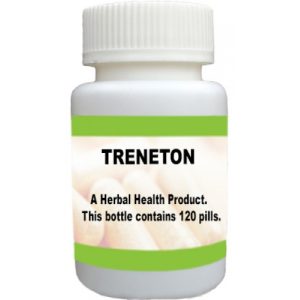
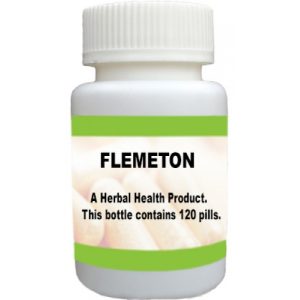
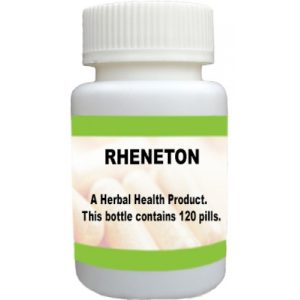
Reviews
There are no reviews yet.